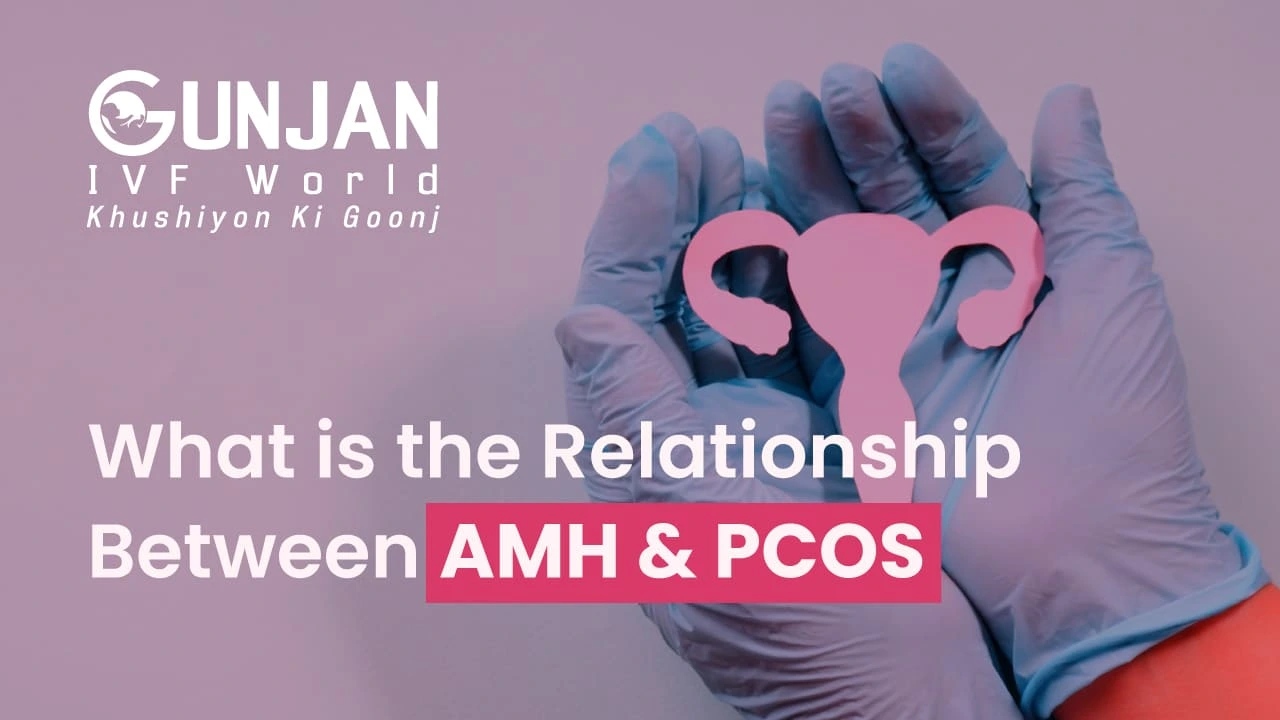Overview
Polycystic ovarian syndrome (PCOS) is a hormonal disorder that affects women of reproductive age. It is characterized by menstrual irregularities, cysts on the ovaries, and high levels of testosterone. Some women with PCOS also experience obesity and infertility.
AMH (anti-mullerian hormone) is a hormone produced by the ovarian follicles. Levels of AMH are often elevated in women with PCOS, and it has been suggested that AMH may play a role in the development of PCOS.
“ This blog post will explore the relationship between AMH and PCOS, and examine the evidence for AMH as a marker for PCOS diagnosis. “

Exploring the relationship between AMH and PCOS
There is a growing body of evidence linking AMH to PCOS. A number of studies have found that women with PCOS have elevated levels of AMH, and that this may be involved in the development of the condition.
One study found that AMH levels were significantly higher in women with PCOS compared to controls, and that AMH was positively correlated with the severity of PCOS symptoms.
Another study found that AMH may play a role in the development of insulin resistance in women with PCOS, and that high AMH levels were associated with an increased risk of developing type 2 diabetes.
Further evidence for a link between AMH and PCOS comes from animal studies. One study found that mice lacking the gene for AMH were more likely to develop PCOS-like symptoms, including irregular ovulation and hyperandrogenism.
Another study found that AMH was necessary for the development of ovarian cysts in a mouse model of PCOS.
These studies suggest that there is a link between AMH and PCOS, and that AMH may play a role in the development of the condition.
However, it is important to note that most of these studies are correlational, and do not prove causation. Further research is needed to confirm the role of AMH in the development of PCOS.
Read Also – What is the Difference between PCOD vs. PCOS? (In Details)
Our ratings
Book An Appointment
Follow Us On
AMH as a marker for PCOS diagnosis
There is evidence that AMH may be a useful marker for the diagnosis of PCOS. One study found that AMH levels were significantly higher in women with PCOS compared to controls, and that AMH was able to correctly identify women with PCOS with high accuracy.
Another study found that AMH may be a more accurate marker for PCOS than the current gold-standard diagnostic test, the ovarian reserve testing. The study found that AMH was able to correctly diagnose PCOS with high accuracy, while ovarian reserve testing had a lower accuracy.
These studies suggest that AMH may be a useful marker for the diagnosis of PCOS. However, more research is needed to confirm the role of AMH in diagnosing PCOS.
Read Also – Can I Get Pregnant With PCOS?
20+ Years Of Experience as Fertility Specialists
20 Years Of Experience as a Fertility Specialists
National Fertility Awards 2023
Call Us
+917042874533
Conclusion
There is growing evidence linking AMH to PCOS. A number of studies have found that women with PCOS have elevated levels of AMH, and that this may be involved in the development of the condition.
AMH may also be a useful marker for the diagnosis of PCOS. Further research is needed to confirm the role of AMH in the development and diagnosis of PCOS.
If you are experiencing symptoms of AMH and PCOS, then contact a fertility doctor immediately. With the help of our fertility doctor in Delhi, India, we can reverse your condition.
Share this with
Related Blogs
Can I Get Pregnant With PCOS?
If you have been diagnosed with PCOS, you may be wondering if you are still able to get pregnant. The good news is that most women with PCOS can still conceive a child, but there are some things that you need to keep in mind.
What is the Difference between PCOD vs. PCOS? (In Details)
Are PCOD and PCOS relative terms? Lots of women are confused about the difference between the two, often using the words interchangeably, particularly when attempting to comprehend the relationship between PCOS and PCOD, which is a common occurrence.
Follow Us On
About Author









